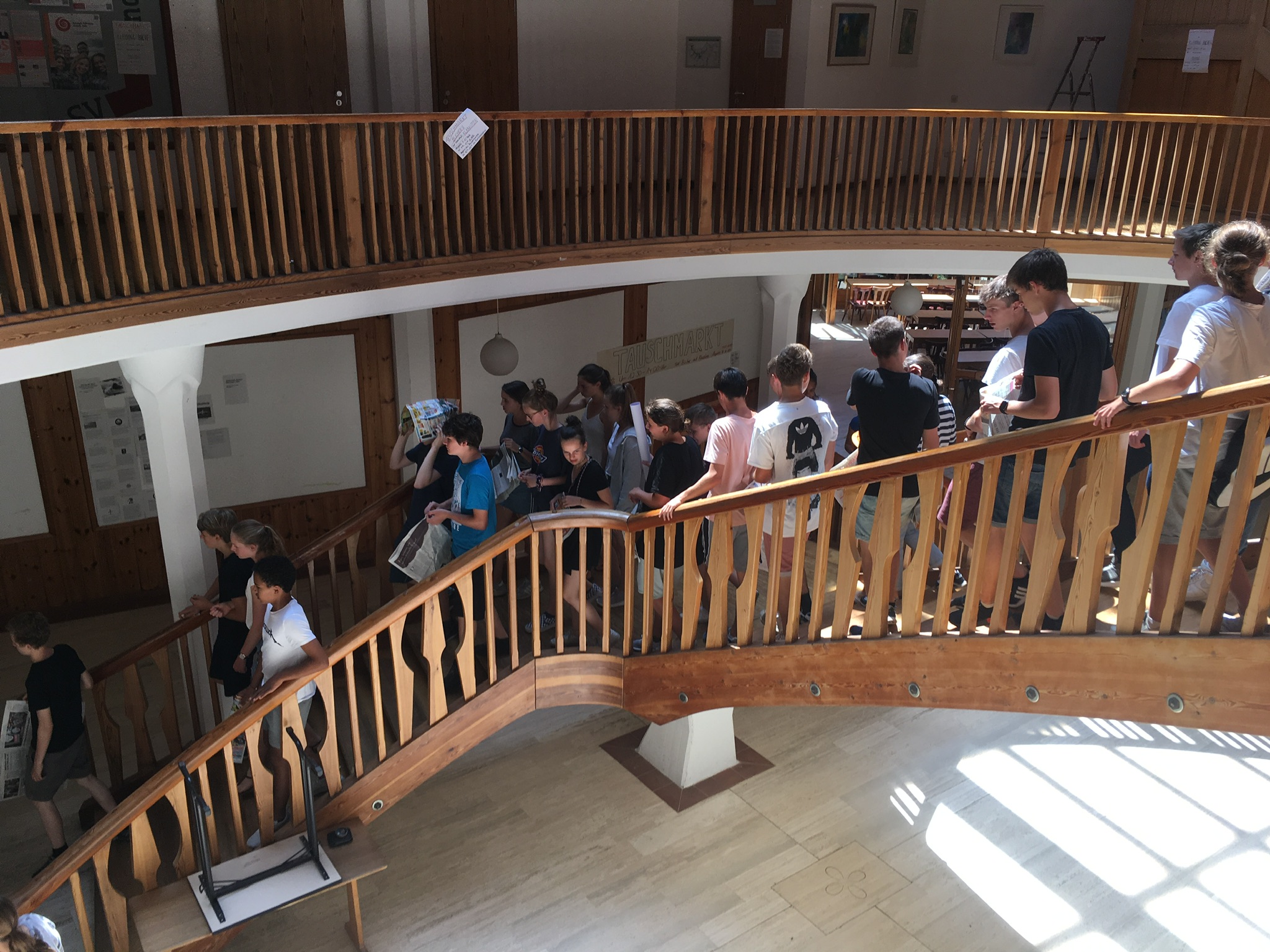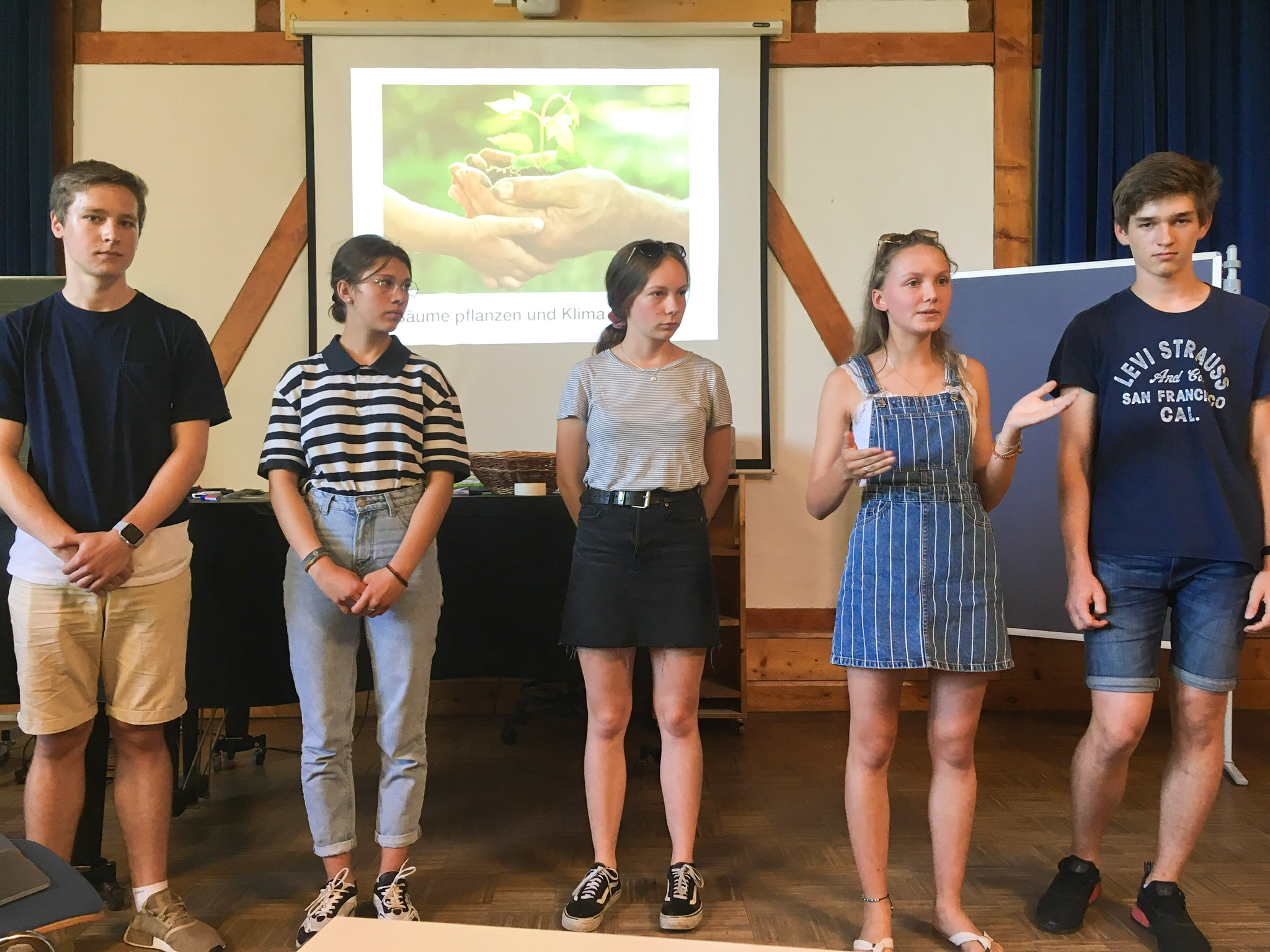Young Innovators Climathon in Überlingen, Germany
It is Monday, 22nd of July 10.30 in the morning and the central music room fills more and more up with about 60 students from 14-18 years old. Karol feels a bit nervous but eager to present the climate challenge he has prepared for the students to work on during the next three days, right before leaving to summer break.
He was invited by Climate-KIC to attend the first Young Innovators Climathon at the Waldorfschule in Überlingen a few weeks ago. As a coordinator of the “Fridays for future” movement in the city of Konstanz, Karol was largely involved in making this city the first city in Germany, declaring climate emergency. The idea of the Young Climathon inspired him right away because he saw a huge potential engaging more of the younger generation in developing concrete actions to tackle climate change and work on possible solutions in a systemic way. Moreover, as a recent graduate of the Waldorfschule, he felt responsible to give something back. He starts by stating the importance of becoming active, particularly for the younger generation. Raising sea levels, deforestation and biodiversity loss due to human intervention are challenges, which will have a huge impact on the future possibilities of everybody, who wants to live on a healthy planet. It is now time to act and do something. Referring to his activism in the “Fridays for future” he underpins that everybody can do something. He adds that everybody should take the opportunity to develop some concrete ideas in the next three days and take the first steps to become active and change the public transport system in the region.
He starts by stating the importance of becoming active, particularly for the younger generation. Raising sea levels, deforestation and biodiversity loss due to human intervention are challenges, which will have a huge impact on the future possibilities of everybody, who wants to live on a healthy planet. It is now time to act and do something. Referring to his activism in the “Fridays for future” he underpins that everybody can do something. He adds that everybody should take the opportunity to develop some concrete ideas in the next three days and take the first steps to become active and change the public transport system in the region.
After the brief, the students could choose to work on two other challenges, one on multi-use packaging and the other recycling of garbage within the school.
4 Teams of a total of 18 students chose the challenge on public transport. Karol really appreciates to work with the students and feels that his inputs are well leveraged with the insights from the trainers from myclimate. The use of systemic tools such as the pentagonal problem helps students to look at the existing challenge from various perspectives, considering technology, resource availability but also societal challenges such as the inertia to change behaviours.
On day two, Karol could only attend in the afternoon. After an energizing exercise, which increased awareness on climate challenges for the students in a playful way (newspaper was being used representing melting icecaps), he was ready to coach the students in the finalization of their project ideas and prepare them for the final pitch day.
A group of 5 students with their project title “Bruder muss los” conceptualized an application, which helps public transport companies to manage the size and schedule of buses more effectively. The team envisions a platform to customers to choose their preferred way of transport, including carpooling, in order to get from A to B.

Even though the jury gives the most points to this group, it is great to see the variety of solutions, which were developed, Karol mentions. He encourages all the students to continue to work on their solutions and start to actively involve more stakeholders to come from the ideation-phase to the implementation. As a first hint to the students Karol focuses on the low-hanging fruit principle. “Why not start to change the world by going home to your parents and neighbours and present the idea tonight”?


